Famous Chemists from the Eighteenth Century
The eighteenth century brought developments in all fields of science, not least in chemistry. It was a time of experiment and discovery, and new theories abounded in many disciplines. In this moment, the contribution and achievement of a number of pioneering chemists provided the theoretical basis for all the researches and discoveries that were to follow.
Here are the big four, known as the fathers of chemistry as we know it. They all deserve to be on our list of amazing chemistry discoveries.
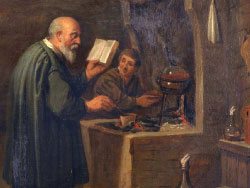
Antoine Lavoisier

Antoine Lavoisier (1743-1794) was a chemist, biologist, and victim of the French Revolution.
His most famous discovery was the law of conservation of mass, which states that whilst substances may change their state or form, they retain the same mass. This was important because it allowed other scientists to think about the differences between substances in terms other than differences in qualitative properties.
He was also the first person to identify oxygen and hydrogen, and was the first to notice the role of oxygen in combustion – something that is now fundamental to understanding almost all chemical reactions.
Antoine Lavoisier, one of the most famous chemists to have ever lived.
John Dalton
Working on the basis of Lavoisier’s theories, John Dalton (1766-1844) is these days today.
This theory suggested that every substance is made of atoms and that the atoms of each element are identical. Dalton’s atomic theory also held that chemical compounds are the combination of atoms of different elements and that, in chemical reactions, these atoms are rearranged and combined.
In his laboratory experiments, he also studied, and ultimately formulated a theory of, atomic weight. From this notion, we reached our realisation of the different molecular structure of different substances.
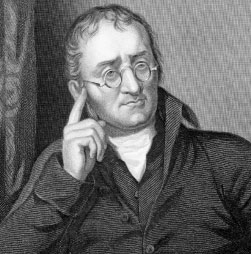
Amedeo Avogadro
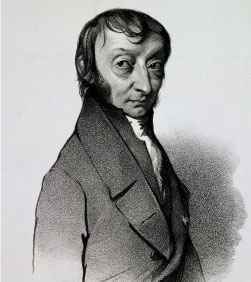
If you have studied chemistry at any level in your life, you will have heard of Amedeo Avogadro (1776-1856), who has named after him a scientific law, a chemical unit, a mineral, and even a lunar crater. As a chemist and a mathematical physicist, he was something of a pioneer.
Avogadro’s great discovery is what has come to be known as Avogadro’s Law, which states that, under the same temperature and pressure conditions, the same volumes of different gases will have the same number of molecules.
Why did this matter? Because it ultimately helped to distinguish between the molecule and the atom, which he rather called the ‘elementary molecule’. Dalton had never considered the difference, but thanks to Avogadro, we know better!!
Jöns Jacob Berzelius
The last of these grandparents of chemistry, the contribution of Jöns Jacob Berzelius (1779-1848) is as important as all the above.
Primarily, Berzelius is known for formalising the language of chemistry. He invented the system of notation by which we refer to different elements, and he came up with fundamental terms in physical chemistry such catalysis, polymer, and what we now call ionic bonding. Not only this, but he also discovered a number of elements himself: cerium, thorium, and selenium.
However, perhaps most importantly, Berzelius is credited with being the first person to measure accurately the weight of atoms. Drawing on Dalton’s prior work, Berzelius experimental success in this field paved the way for everyone who came after.
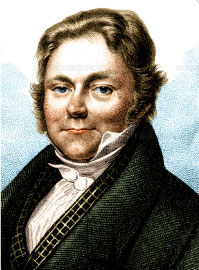
Perhaps the most Famous Chemist of all: Dmitri Mendeleev The work of Dmitri Mendeleev (1834-1907) is something that we have all seen in our lives, and something that is still the most iconic symbol of chemistry: the periodic table. Not just a chemistry genius, but also interested in geology, meteorology and other disciplines, he’s probably had the most significant impact on what we understand to be chemistry.
He came up with the periodic table of the elements apparently in a dream, in which he saw patterns between different chemicals that could allow them to be arranged in a certain order. Not yet knowing all the elements we do now, he left gaps in the table that were later to be filled. As such, he not only laid the ground for future developments in chemistry, but he actually predicted them too.
Mendeleev, probably the most important chemist ever.
Renowned Chemical Scientists: the Nineteenth Century
The discoverers and inventors that pioneered so much of what we call chemistry today also prepared the way for the inventions of the nineteenth century. In this period, two names stand out: Robert Bunsen and Alfred Nobel.
Robert Bunsen
Ever heard of a Bunsen burner? If so, you have one man to thank (or blame!): Robert Bunsen (1811-1899), the inventor of everyone’s favourite piece of scientific apparatus.
A university lecturer in Germany and seemingly an all-round lovely guy, in his spare time from writing textbooks he developed an antidote for arsenic poison and discovered the element, caesium.
As you can imagine, he was interested in burning things, and particularly concerned with the different colours (emission spectra) that different elements produced when they are heated. That’s why he produced his famous burner so that these colours weren’t ruined by the colour of the flame itself!

Alfred Nobel
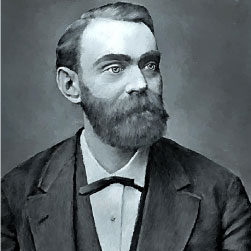
This chemist and businessman, Alfred Nobel (1833-1896), is known in all fields, due to the Nobel Prize – the award for excellence in literature, the sciences, and economics.
But this man’s biography is not as nice as you might expect. His professional life was in selling weapons – explosives, mainly – and to chemistry, his contributions were generally in inventing the explosives that he sold.
Nobel’s main achievement was the invention of dynamite. Intended as a tool for construction – for roads, industry, and canals – this chemical discovery was to have a sordid history, as we know.
In his later years, as the story goes, he felt a little guilty about producing one of the most destructive chemical substances ever devised. He donated his massive fortune to inaugurating the Nobel Prize in Chemistry, Physics, Medicine, and Peace.
Twentieth-Century Chemists You Should Know
In the twentieth century, the subject of chemistry blossoms even further, branching out into different sub-disciplines and becoming the subject we know today.
Linus Pauling

Linus Carl Pauling (1901-1994) has often been hailed as one of the most important scientists ever to have lived – and if you haven’t heard of him, now is your opportunity.
Pauling essentially invented, single-handedly, what we now know as molecular biology – the study of things like proteins and acids in the body – and quantum chemistry, or the study of the relationships between the smallest things in the atom. And if, at school, you’ve heard of covalent or ionic bonds As a lifelong activist for nuclear disarmament, Pauling was not only a Nobel Laureate in chemistry, but he won the Nobel Peace Prize too. Finally, his research into proteins also inspired the work of Francis Crick and James Watson, who, without Pauling, would never have discovered the structure of DNA.
Dorothy Hodgkin
Now time for a chemist that is often overlooked in the histories of famous scientists: Dorothy Hodgkin (1910-1994). Another Nobel Laureate, Hodgkin is the only British woman to have ever won a Nobel Prize in a science.
Hodgkin’s main discoveries were in the structure of molecules and proteins in the body, and her research had a massive impact on biochemistry and medicine. She and her team worked on the structure of penicillin, vitamin B12, and, importantly, insulin. Her career was notable for her advocating for the importance of knowledge of insulin, too – for its central role in diabetes.
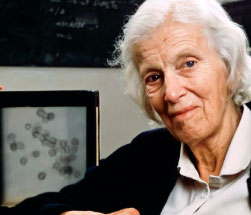
Kathleen Lonsdale
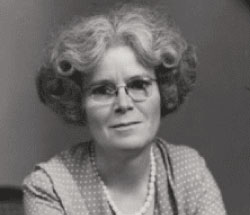
And another twentieth-century chemist that deserves to be more famous than she is: Kathleen Lonsdale (1903-1971). As a scientist, she was one of the first women to be elected as a Fellow of the Royal Society and was awarded numerous titles for her important work in crystallography, or the study of the arrangement of atoms in crystals.
Alongside her work on diamonds, and her profoundly influential research into the structure of benzene, she was an advocate for pacifism and an inspiration for women scientists across the world.